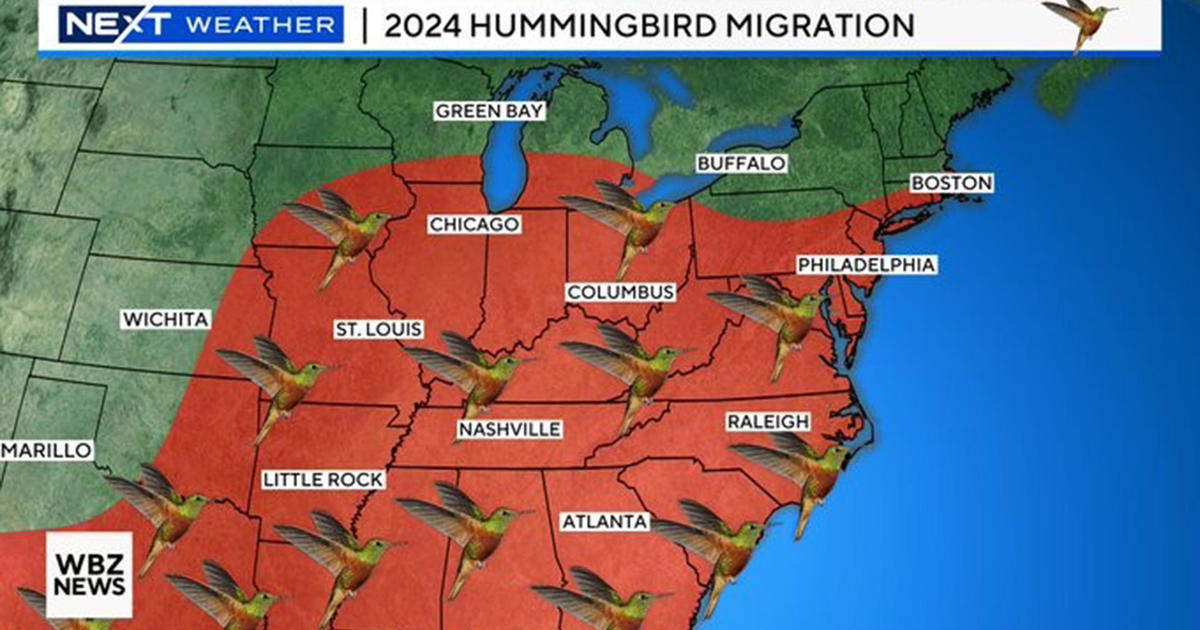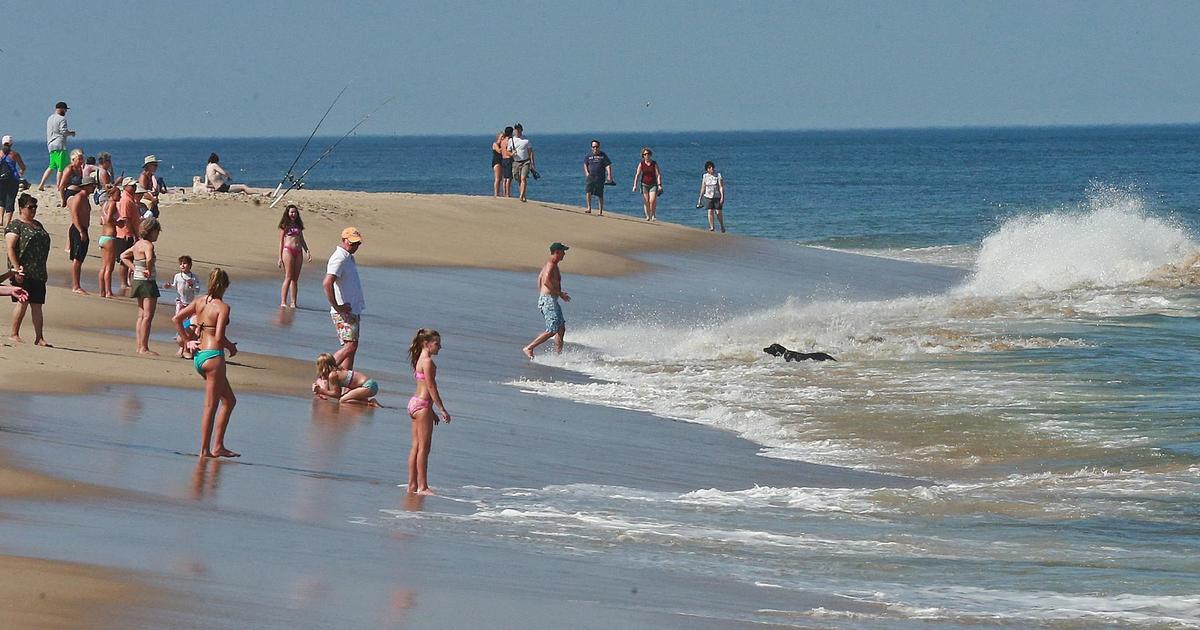Some Say New England Herring At Risk From Trawlers
BOSTON (AP) — New England's historic fishing industry doesn't spare much of its romance for the herring.
The tiny fish is, at most, a foot long. The price per pound often won't even buy 12 minutes at a Boston parking meter. Some people eat it pickled, but herring is mainly caught to become bait for more popular seafood, such as lobster.
The herring, though, is deeply important to fishermen and environmentalists, who are fighting to put greater restrictions on trawlers that pull up hundreds of thousands of pounds of herring at a time.
They argue that the large trawlers are depleting a species that's a critical food for just about every prized commercial fish in the region, from cod to striped bass. The herring's influence even extends to ocean tours, which depend on abundant herring to attract whales and birds to the ocean surface to feed and be seen.
"For many people who don't work on the water, make their money on the water, I think it's easy to underestimate the importance of herring," said Tom Dempsey of the Cape Cod Commercial Hook Fishermen's Association.
The New England Fishery Management Council is considering clamping down on midwater herring trawlers, named for the area of the water column they the pull their nets through. A series of eight public hearings around the Northeast wrapped up Thursday in Cape May, N.J., and council action is expected in June.
The proposals include tighter requirements on how the trawlers weigh their catch and bans on certain fishing areas.
A key proposal would force trawlers to carry independent observers on every trip, in part to stop suspected over-catching and dumping of protected species the herring boats snare unintentionally, such as cod and haddock.
"It's time for a change in that fishery," said Bob St. Pierre, who fishes for tuna, striped bass and groundfish out of Chatham.
But the herring industry says there's scant evidence their trawlers are the menaces they're portrayed as.
Mary Beth Tooley, a long-time herring industry member and also a Maine representative on the regional management council, said the stock is robust, and there's no research yet to contradict that. There's also no data to show the midwater trawlers are catching and killing huge amounts of other fish species.
Opponents complain scientists have simply been slow to collect the information. But Tooley said the herring industry is getting battered based on a faulty assumption that because the boats are big — up to 165 feet long — they're doing big damage.
"I think perception is everything," she said. "I don't think there's a lot we can do to overcome that perception."
Herring was the fifth-highest revenue fishery in New England in 2010, bringing in nearly $21 million on 140 million pounds of fish (15 cents per pound), according to the National Marine Fisheries Service. The bulk of the catch, about 80 percent, was bait for commercial and sport fishermen.
Herring are a schooling fish and can congregate in masses the size of Manhattan. Steve Weiner, a harpoon tuna fishermen, describes being atop colossal "vortexes" of herring, as whales, other fish and countless birds dove into them.
"It's scary even to be in it, because these animals are just drunk on herring," Weiner said.
But St. Pierre said he doesn't see any more huge herring shoals in local waters, and that's coincided with the appearance of the midwater trawlers.
The trawlers often work in pairs, pulling a football field-sized net between them, then sucking the herring from the net into ships' holds. The trawlers, with crews of about six, dominate the local herring catch and work with remarkable efficiency.
St. Pierre says he'll be working an area with abundant haddock, for instance, then the trawlers appear and the haddock are gone. Weiner said fishermen have also noticed the herring getting smaller, a possible sign that the older, larger herring have been fished to nearly nothing.
This evidence of a herring problem is mostly anecdotal, but Weiner says the decades of knowledge and observation from all corners of the industry can't be dismissed.
"The best available science in most of these fisheries is still pretty weak stuff," Weiner said.
The depletion of herring stocks could have numerous implications, fishermen and environmentalist say. Bait costs would rise for the region's lucrative lobster industry. Without herring to chase and eat, game and commercial fish could fade from inshore waters. Struggling species, such as cod, could fail to rebound without this key food.
"Herring are a vital food source for cod and many other species," said Jud Crawford of the Pew Environment Group. "It doesn't take a rocket scientist to get the idea that if you're pulling out one of the major food sources (for cod) ... you're at least decreasing the chances of recovery."
Regulators are now conducting a major assessment, expected to be completed this summer, which should answer key questions about herring's health.
In the meantime, the herring industry has anecdotal evidence of its own to counter critics. Tooley said reports of herring scarcity are just snapshots from people who don't track the fish for a living and see how plentiful it is.
Without hard evidence that shows otherwise, the industry isn't going to agree to being shut out of new areas, concede that long-used methods for weighing the catch are inaccurate or say the trawlers are harming other fish species.
But Tooley said the industry supports placing independent observers on every midwater trawler trip, to increase overall confidence in the fleet.
"We need to have a monitoring program that allows the fleet to operate without all this constant criticism," she said.
Copyright 2012 The Associated Press.



